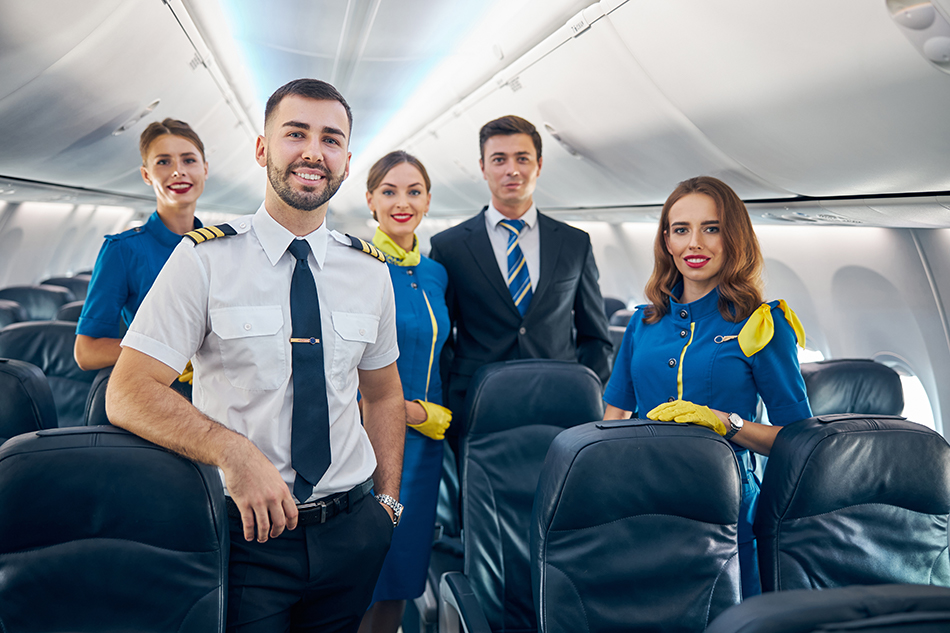Top 10 Exciting Careers in the Aviation Industry
Top 10 Exciting Careers in the Aviation Industry
The aviation industry is more than just pilots and flight attendants—it’s a dynamic field filled with thrilling career opportunities for those passionate about flying, engineering, safety, and customer service. Whether you dream of soaring the skies or working behind the scenes to keep everything running smoothly, aviation has something for everyone. Here are ten of the most exciting careers in the aviation industry that you should consider, along with the requirements to get started.
1. Airline Pilot
Being an airline pilot is one of the most prestigious and adventurous careers in aviation. Pilots are responsible for safely transporting passengers and cargo across the globe, often experiencing breathtaking views from the cockpit. This job requires rigorous training, strong decision-making skills, and the ability to handle high-pressure situations.
Requirements:
A bachelor’s degree in aviation, aeronautical science, or a related field (preferred but not always required).
Completion of a flight training program from an accredited flight school.
A Commercial Pilot License (CPL) and Airline Transport Pilot License (ATPL).
Accumulation of at least 1,500 flight hours for commercial airline jobs.
Strong problem-solving skills and the ability to work under pressure.
2. Air Traffic Controller
Air traffic controllers play a crucial role in aviation safety. They coordinate the movement of aircraft in the sky and on the ground, ensuring smooth and efficient takeoffs and landings. This job demands exceptional focus, quick thinking, and the ability to multitask in a fast-paced environment.
Requirements:
A degree in air traffic management, aviation, or a related field.
Completion of an FAA-approved Air Traffic Collegiate Training Initiative (AT-CTI) program (in the U.S.).
Passing the FAA’s Air Traffic Skills Assessment (ATSA) exam.
Strong communication, problem-solving, and decision-making skills.
3. Aircraft Maintenance Engineer
Without skilled aircraft maintenance engineers, planes wouldn’t be able to fly safely. These professionals inspect, repair, and maintain aircraft to meet strict safety standards. It’s a highly technical job that requires a deep understanding of aerodynamics, mechanics, and electrical systems.
Requirements:
A diploma or degree in aircraft maintenance engineering or aviation technology.
Certification from aviation regulatory bodies like the FAA (U.S.) or EASA (Europe).
Strong mechanical aptitude and attention to detail.
Physical stamina and ability to work under challenging conditions.
4. Flight Attendant
Flight attendants are the face of the airline industry, ensuring passenger safety and comfort during flights. They receive specialized training in emergency procedures, customer service, and first aid, making them an essential part of every journey.
Requirements:
A high school diploma or equivalent (some airlines prefer a college degree in hospitality or tourism management).
Completion of airline-specific training programs.
Excellent communication and customer service skills.
Ability to handle emergency situations calmly.
5. Aerospace Engineer
Aerospace engineers design and develop aircraft, spacecraft, and other aviation-related technology. They work on cutting-edge innovations that improve flight safety, fuel efficiency, and overall performance. This career is perfect for those who love science, engineering, and problem-solving.
Requirements:
A bachelor’s degree in aerospace engineering, mechanical engineering, or a related field.
Strong background in physics, mathematics, and computer-aided design (CAD).
Knowledge of aerodynamics, propulsion, and avionics.
Ability to work in multidisciplinary teams.
6. Airport Operations Manager
Airport operations managers oversee the daily functions of an airport, ensuring that everything runs efficiently. From security and logistics to customer service and maintenance, they handle a wide range of responsibilities to keep air travel smooth and safe.
Requirements:
A bachelor’s degree in airport management, business administration, or aviation.
Experience in airport operations or aviation management.
Strong leadership and organizational skills.
Knowledge of airport regulations and safety protocols.
7. Aircraft Dispatcher
Aircraft dispatchers work closely with pilots to plan flight paths, taking into account weather conditions, fuel efficiency, and air traffic. They play a critical role in ensuring flights depart on time and reach their destination safely.
Requirements:
A high school diploma or GED (some employers prefer a degree in aviation or a related field).
Completion of an FAA-approved dispatcher training course.
A valid Aircraft Dispatcher Certificate.
Strong decision-making skills and the ability to handle stress.
8. Aviation Safety Inspector
Aviation safety inspectors enforce regulations and conduct inspections to ensure airlines, aircraft, and aviation professionals comply with safety standards. This job requires expertise in aviation laws, mechanics, and risk assessment.
Requirements:
A degree in aviation, aeronautical science, or a related field.
Previous experience in piloting, aircraft maintenance, or air traffic control.
Knowledge of aviation safety regulations.
Strong analytical and problem-solving skills.
9. Drone Pilot
With the rise of drone technology, drone pilots are in high demand for various industries, including aerial photography, delivery services, and surveillance. This is a futuristic and evolving career path that combines aviation knowledge with technological expertise.
Requirements:
A high school diploma or higher education in aviation technology, engineering, or a related field.
Certification from regulatory bodies like the FAA (Part 107 Remote Pilot Certificate in the U.S.).
Strong technical knowledge of drone operations and safety procedures.
Ability to operate drones in various environments and conditions.
10. Flight Instructor
Flight instructors train aspiring pilots, providing them with the knowledge and skills they need to earn their pilot’s license. This career is ideal for experienced pilots who enjoy teaching and mentoring the next generation of aviators.
Requirements:
A Commercial Pilot License (CPL) with an Instructor Rating (CFI).
Strong teaching and communication skills.
Extensive flight experience and adherence to aviation safety regulations.
Patience and the ability to mentor students effectively.
The aviation industry is a vast and exciting field filled with opportunities for people with different skills and interests. Whether you’re drawn to the thrill of flying, the technical side of aircraft maintenance, or the responsibility of ensuring safety, there’s a career waiting for you. Start exploring your options today, gain the necessary qualifications, and take the first step toward an exciting future in aviation!




